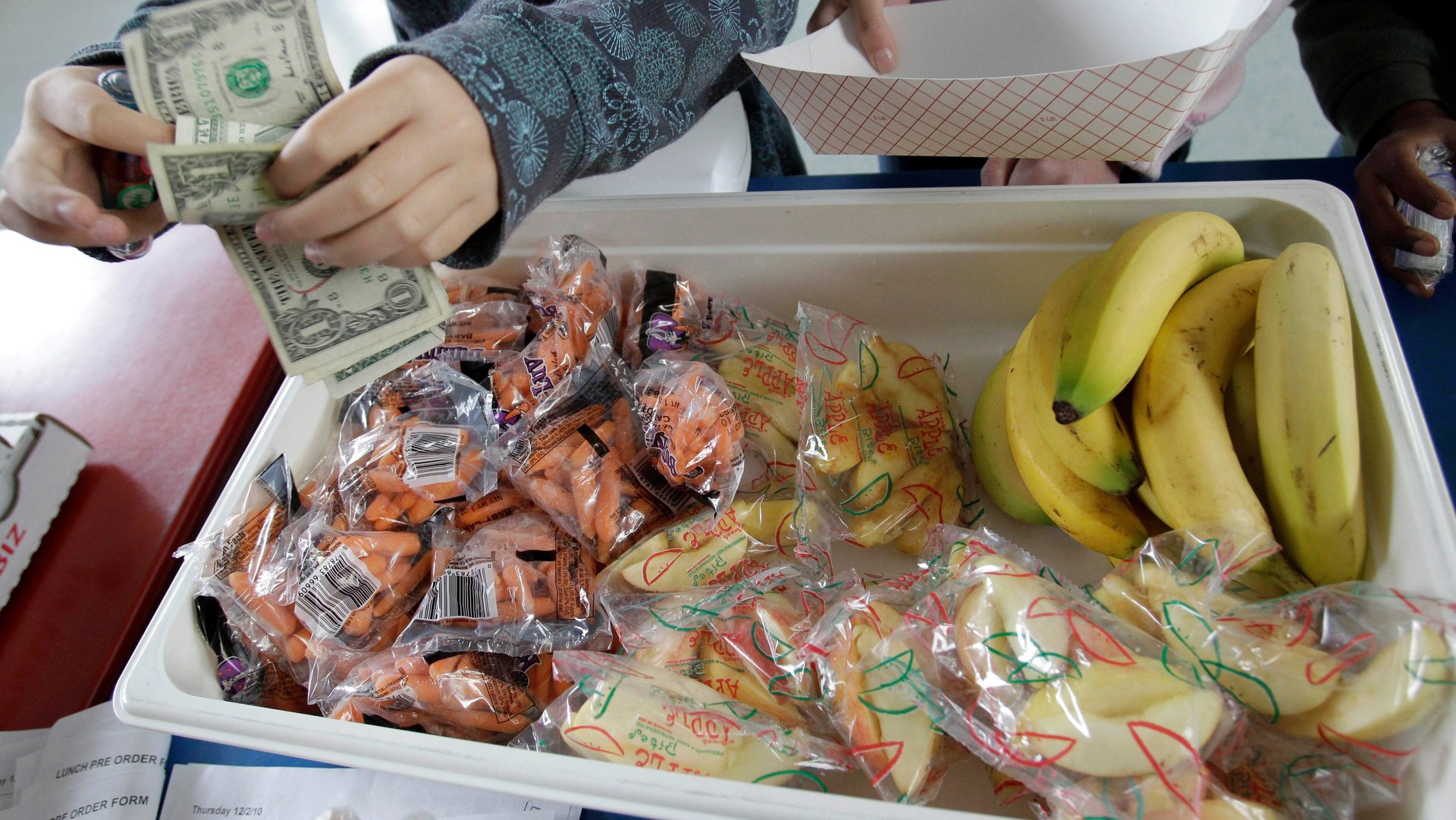India’s honesty shops are more proof that shame is the worst teacher
At St. Clarets, a school in the village of Karumathur in southern India, kids have a chance to prove their moral mettle daily. Each classroom has an “honesty shop” from which students can help themselves to a table piled with snacks like candy, muffins, and samosas, using the honor system to pay for the items by slipping money into a cash box.


At St. Clarets, a school in the village of Karumathur in southern India, kids have a chance to prove their moral mettle daily. Each classroom has an “honesty shop” from which students can help themselves to a table piled with snacks like candy, muffins, and samosas, using the honor system to pay for the items by slipping money into a cash box.
Student representatives keep a weekly tally of whether the balance in the box is correct—which it usually is. In fact, NPR reports that the students had an exceptionally honest year in 2017, with the school’s honesty shops coming up just $13 short, well below the average annual loss of $28.
What’s the secret to the students’ scruples? According to headmaster Father Soosai Manickam, positive reinforcement is key. In the past, if there’s been a dishonest streak, the school sits down for an assembly and teachers suggest that the students work to be more honest in the future. But starting in January, 2019, “instead of naming the classes that have shown a deficit and telling them that they can do better, we intend to praise the ones that have been completely honest,” Manickam tells NPR.
This approach to cultivating kids’ honesty is in keeping with a growing body of research that shows that shame isn’t just ineffective as a teaching strategy—it’s actually counterproductive.
Writing in the education journal Phi Delta Kappan, Joan Goodman explains that shame chips away at people’s self-worth. Compared to the emotion of embarrassment, she says, ”shame is a more totalizing experience and carries with it a more powerful message: You are inadequate, not the equal of others, without the same dignity.”
Shame discourages meaningful personal growth and introspection, Goodman writes. “The shamed child is unlikely to reflect on whether and why her behavior was wrong; more likely, she will conclude, ‘I must have done wrong because you think I did.’ The adult’s judgment overwhelms whatever proclivities she might have for independent assessment of the situation.”
Shame has a long history in schools, most famously perhaps in the form of the dunce cap. Dismissive comments from teachers, bullying from other students, and a general sense of apathy and unwillingness on the part of teachers and administrators to help students who may be struggling can all produce shame. Students who experience school through the lens of shame often shut down in a way that prevents them from learning. ”Many children who have difficulties in school are simply passed from grade to grade without ever learning the basic skills necessary for a productive life,” Ann Monroe writes in The Educational Forum. “These children grow to know themselves as failures and are continuously shamed by their perceived weaknesses.”
Shame is similarly limiting outside the classroom setting. A 2017 report by the World Health Organization found that people who experienced obesity stigma, who were humiliated, bullied, or shamed for their body size, were less likely to seek medical care, less likely to exercise, and more likely to suffer from depression and anxiety and to engage in disordered eating.
The simple alternative to shaming children and adults alike for certain behaviors is to offer praise for positive ones. St. John’s school in Madurai, India was inspired by St. Claret’s to start their own honesty shop to cultivate a culture of honesty. Rather than threatening the children with punishment, and humiliation, for making mistakes, teachers have created a place where good behavior is its own reward. “It works because it makes honesty a team effort,” Father J. Joseph Victor Das, the school’s principal told NPR. “Rather like a sport.”